Natural Strategies to Fight High Cholesterol – Say Goodbye to Statins!
Do you have high cholesterol but want to avoid taking statins for as long as possible? That's how I felt!
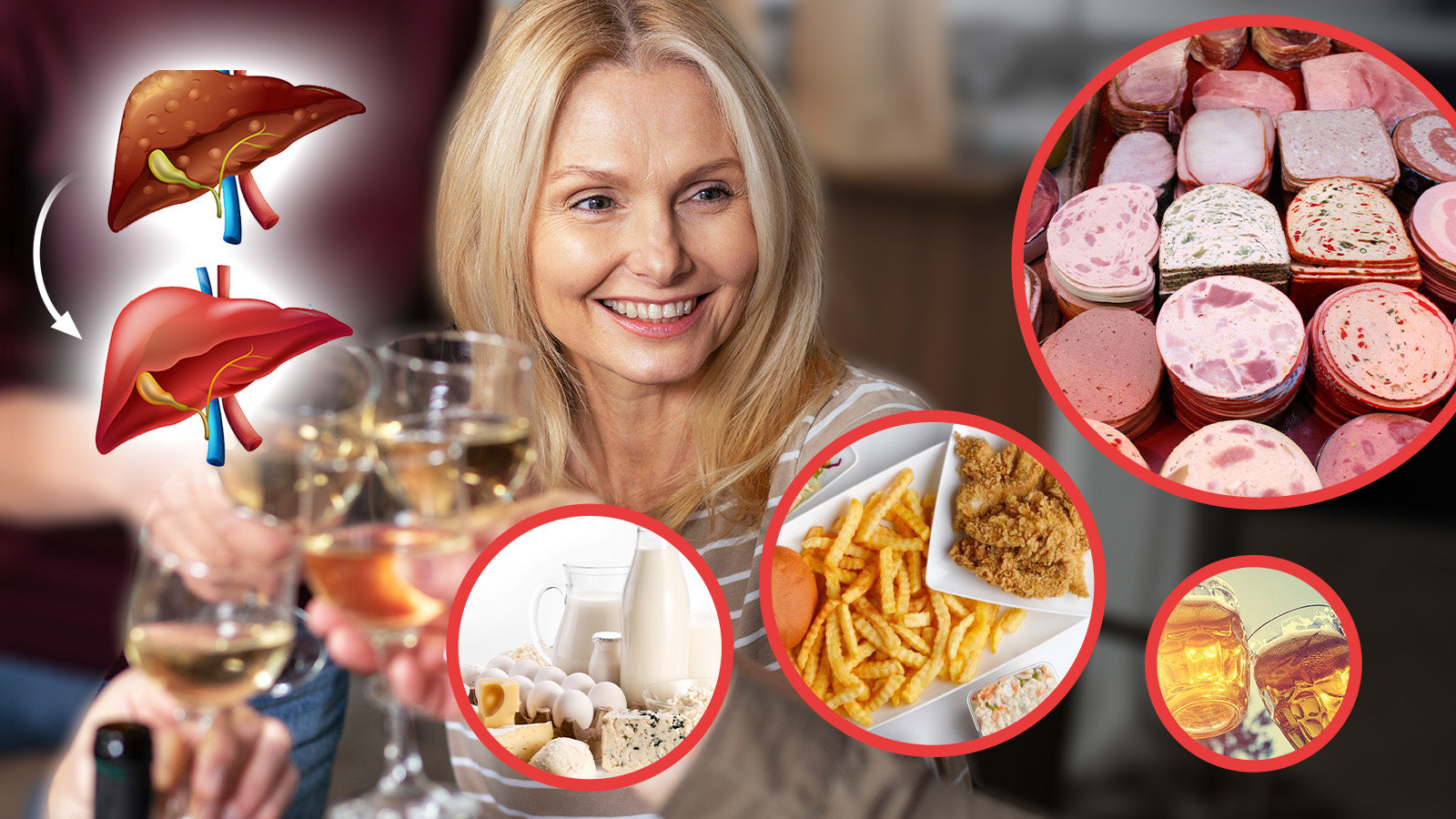
“Tell me, Martina, how do you actually eat?” my doctor asked at my last check-up as he looked at the results of my blood test.
I already suspected something bad.
I am Martina Schuster, 51 years old, and this visit to the doctor should fundamentally change my view on health.
“Your cholesterol levels are elevated. Higher than last year,” he explained to me as he opened his eyes to the results.
Sounds half as wild, right?
I mean, everyone my age has high cholesterol in one way or another.
However, my doctor quickly explained to me that if my cholesterol levels were not lowered, it could have far-reaching consequences.
He suggested that I immediately start taking cholesterol-lowering medications called statins.
You may know the feeling when you suddenly realize that your health is at stake.
But here I was, faced with the real possibility of serious health consequences if I didn't get my cholesterol under control.
Choosing between the potential side effects of statins and the risks of high cholesterol felt like a leap into the unknown.
At that point I decided to look into it deeper.
You may know that high cholesterol can increase your risk of heart disease and stroke.
But what does that actually mean for daily life? What impact does this have on the quality of life?
And are there perhaps ways to treat this condition without having to use medication right away?
In this article I share my personal journey with you.
A journey full of research, conversations with experts and exploring alternative methods.
I want to show you how I managed to lower my cholesterol naturally.
You will learn what role natural remedies play in preventing you from having to turn your life 180 degrees.
Together we look at the options we have, in addition to the medicines that are often hastily prescribed.

Today I can enjoy a glass of wine with my girlfriend again
Back to my personal story
Under the motto “Prevention is better than cure” and because as a working mother I don’t necessarily lead the healthiest lifestyle, I have been visiting my GP for a health check at least once a year since my 45th birthday.
He would then always do an ECG and take my blood to do various tests and check my values.
In the first few years, everything was always good.
It wasn't until I went through menopause a few years later that my levels started to change.
Despite the fact that the hormonal change brought some ups and downs, my cholesterol started to rise.
At first it wasn't particularly concerning to me or my doctor.
He advised me to pay a little more attention to my diet and I thought that would be the end of it.
I wasn't really strict about changing my life, but I wasn't too concerned about my cholesterol.
After all, this is nothing unusual.
A short time later I found out that this was not the case when a good friend of mine suddenly had a cardiac catheter inserted into which two stents, i.e. metal meshes, were inserted to widen a blood vessel.
She also suffered from high cholesterol for years.
At the hospital, she was treated by a wonderful experienced doctor who approached the subject of cholesterol very objectively and realistically.
He also knew that a complete change of all lifestyle habits will work effectively in the long term for very few patients.
I'll explain to you right away why that is.
After her procedure, it took a long time for him to talk to my friend about her cholesterol.
He explained to her the processes involved in cholesterol metabolism in the body and the uncomplicated ways to support healthy cholesterol levels.
And from that moment on, not only my friend's life changed, but mine as well.
Cholesterol - a brief explanation
To understand cholesterol metabolism, we need to look briefly at cholesterol itself.
Cholesterol is a fatty substance found in your body and in some foods.
It is important for many bodily functions, such as building cell walls and producing certain hormones.
So not only is it bad, it is actually necessary.
There are two main types of cholesterol:
- LDL (low density lipoprotein) and
- HDL (high-density lipoprotein)
LDL cholesterol is often called "bad" cholesterol because, when present in large amounts, it can deposit on the walls of blood vessels.
These deposits, also called plaques, can narrow or even block blood vessels, increasing the risk of heart disease and stroke.
Just like it was with my friend.
HDL cholesterol, on the other hand, is considered “good” cholesterol because it helps remove LDL cholesterol from the blood vessels and transport it back to the liver, where it is broken down.
So elevated LDL cholesterol can lead to problems like heart disease, heart attacks and strokes.
The risk of this increases if LDL cholesterol in the blood remains high for a long time.
That is also the treacherous thing about high cholesterol.
You do not immediately notice any complaints or feelings of illness.
It is an insidious disease that remains in the background. Until it is too late.
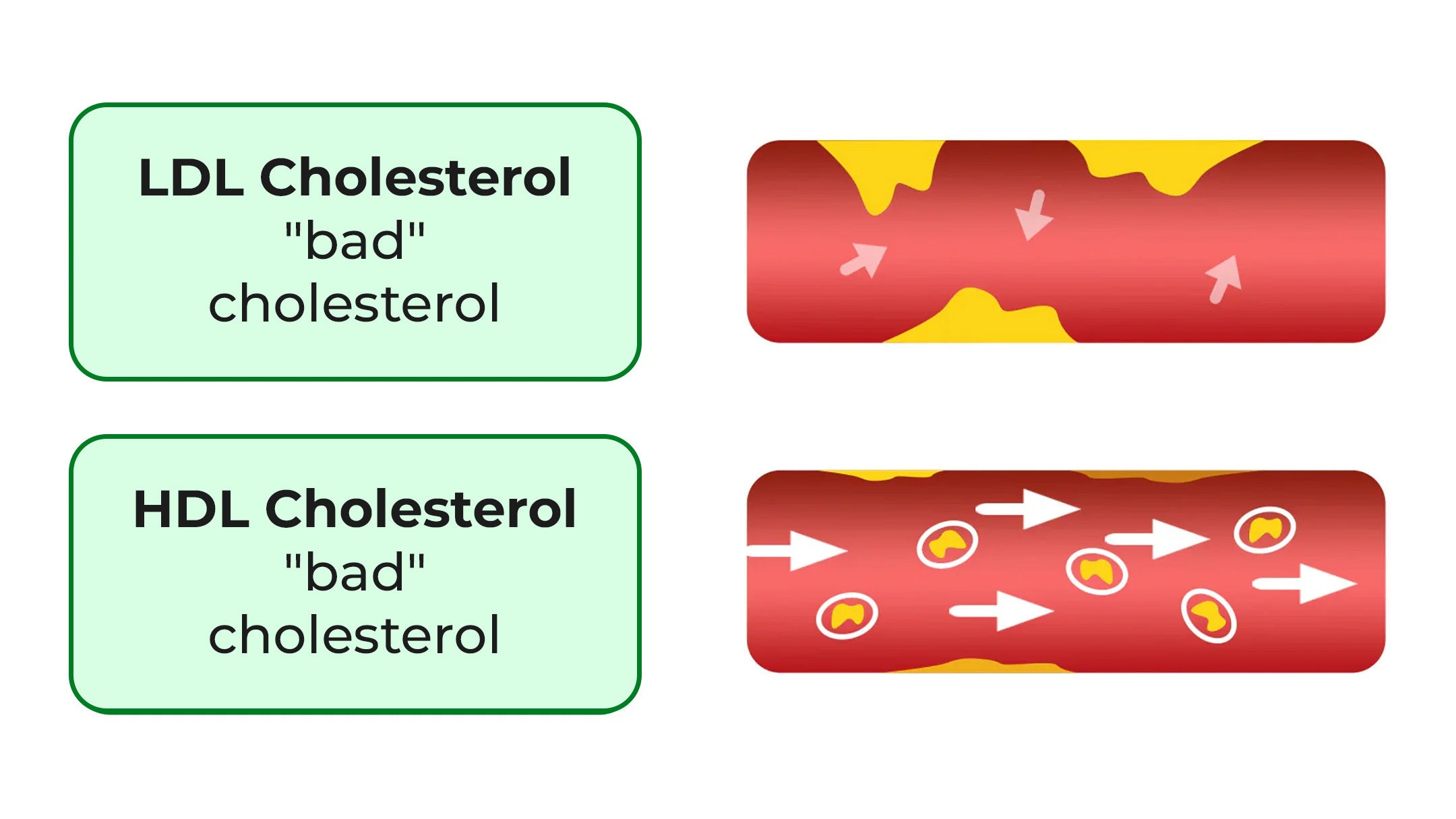
LDL and HDL
Where does cholesterol come from?
High cholesterol can be caused by several factors, including both lifestyle and genetic factors.
Here are some of the most common reasons:
- Power supply
- Lack of exercise
- Overweight
- Smoke
- Alcohol use
- Genetic
- Certain diseases
- Medication
- Age and gender
90% of women over 50 have high cholesterol
Many of these causes explain why doctors often recommend lifestyle changes.
Exercise more, eat healthier, don't smoke and ideally don't drink: who doesn't know it?
In everyday life, this is always easier said than done.
My friend's head doctor knew this too.
For example, 78% of all diets are abandoned.
I knew a lot about these things.
What I didn't know is that especially we women go through an extreme change in our cholesterol metabolism in our lives.
In our younger years, women often benefit from natural protection against high cholesterol levels, thanks to the hormone estrogen.
In contrast, men of the same age are statistically more likely to have high cholesterol.
However, this changes when women reach the hormonal transition phase of life, which usually begins between the ages of 45 and 50.
For some women, sooner or later.
During this period, the relationship is reversed and cholesterol levels in women increase significantly.
In fact, research shows that approximately 90% of women between the ages of 50 and 59 suffer from high cholesterol levels.
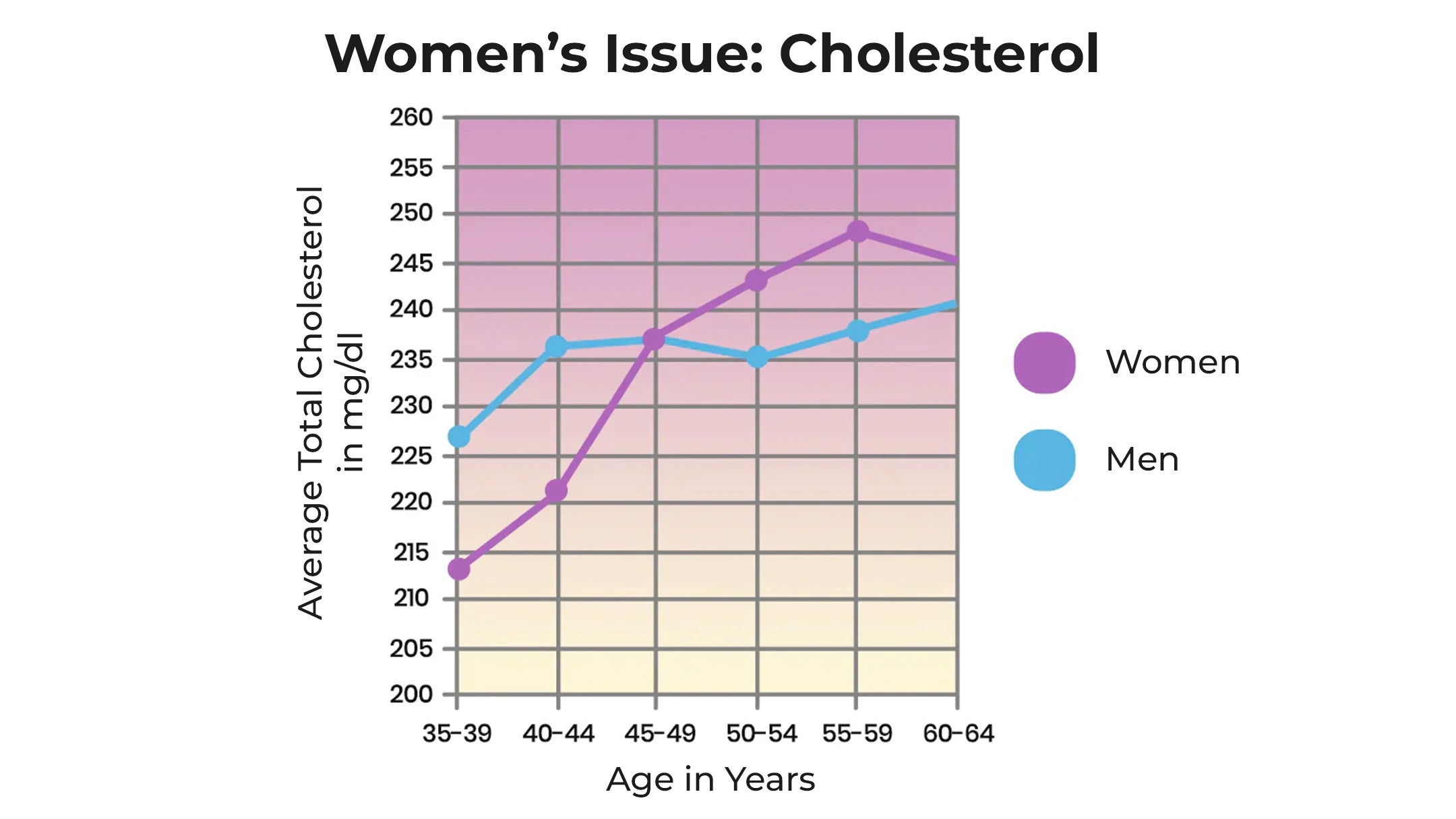
Because cholesterol is essential for bodily functions, but too much cholesterol can cause health problems, a balance between absorption, production and excretion is crucial.
And what makes it all the more difficult:
Elevated cholesterol levels by themselves generally do not cause any immediate, easily observable symptoms.
People with high cholesterol often feel completely normal and have no obvious symptoms that would directly indicate high cholesterol.
That's why high cholesterol is often called a "silent" health condition because it can go unnoticed until serious health problems develop.
Statins: curse or blessing?
Back to my story.
My cholesterol levels had been significantly elevated for some time.
My doctor's suggestion: take cholesterol-lowering drugs.
Cholesterol-lowering drugs are also called statins.
In UK, an estimated 4.6 million people use such drugs to lower cholesterol.
Trend: strongly rising.
Anyone who does a little research on the subject will quickly notice that statins have now become an important market segment in the pharmaceutical industry.
The European Society of Cardiology even lowered cholesterol target levels in 2019.
This means that doctors are now prescribing statins even earlier and faster.
Statins are primarily aimed at lowering high levels of LDL cholesterol, or “bad” cholesterol.
They do this by inhibiting an important enzyme in the liver.
This enzyme plays a central role in cholesterol production in the body.
By suppressing the activity of this enzyme, statins lower total cholesterol in the blood, which in turn may reduce the risk of cardiovascular disease.
Prescribing statins depends on several individual factors.
These include a person's total cholesterol and LDL cholesterol levels, the presence of other risk factors for cardiovascular disease such as high blood pressure, diabetes, smoking habits and family history, and the patient's age.
By lowering the target values, the market for potential patients was significantly expanded.
Such adjustments to such a widely used product generally make me a bit skeptical.
After all, many companies make a lot of money from our fear of the possible life-threatening consequences of high cholesterol.
According to IMS Health, sales of cholesterol-lowering drugs in UK have increased significantly.
In 1990, sales of these drugs amounted to approximately 400 million pounds.
In 2001, cholesterol-lowering drugs had become the best-selling drug group in United Kingdom, with a total volume of £1.14 billion.
And it turns out that statins are not that effective or safe:
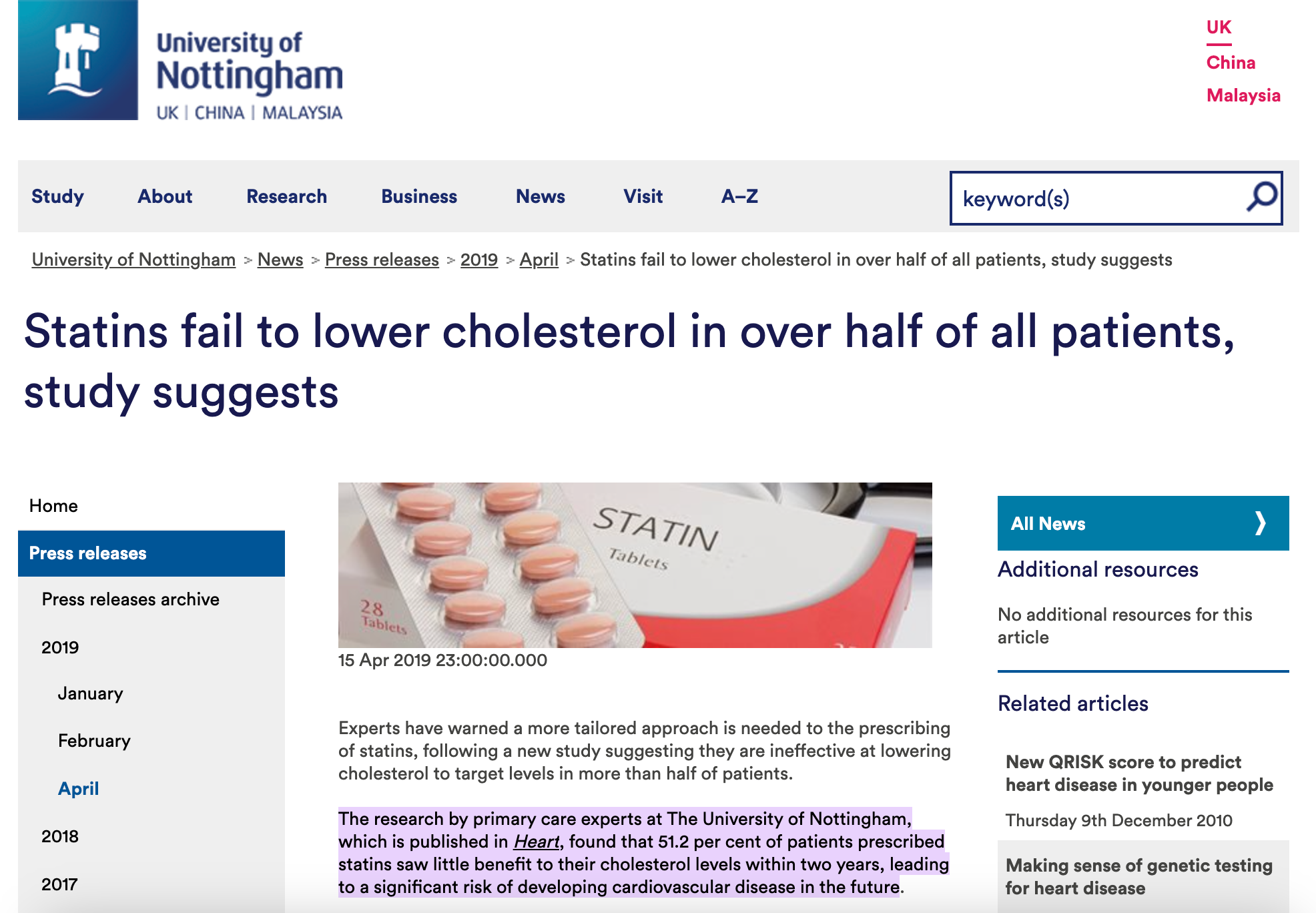
A spring 2019 study from the University of Nottingham, involving more than 165,000 patients, found that statins did not lower cholesterol levels as much as hoped in about half of patients.
Despite taking statins for two years, many patients did not achieve the desired low cholesterol levels, the study results show.
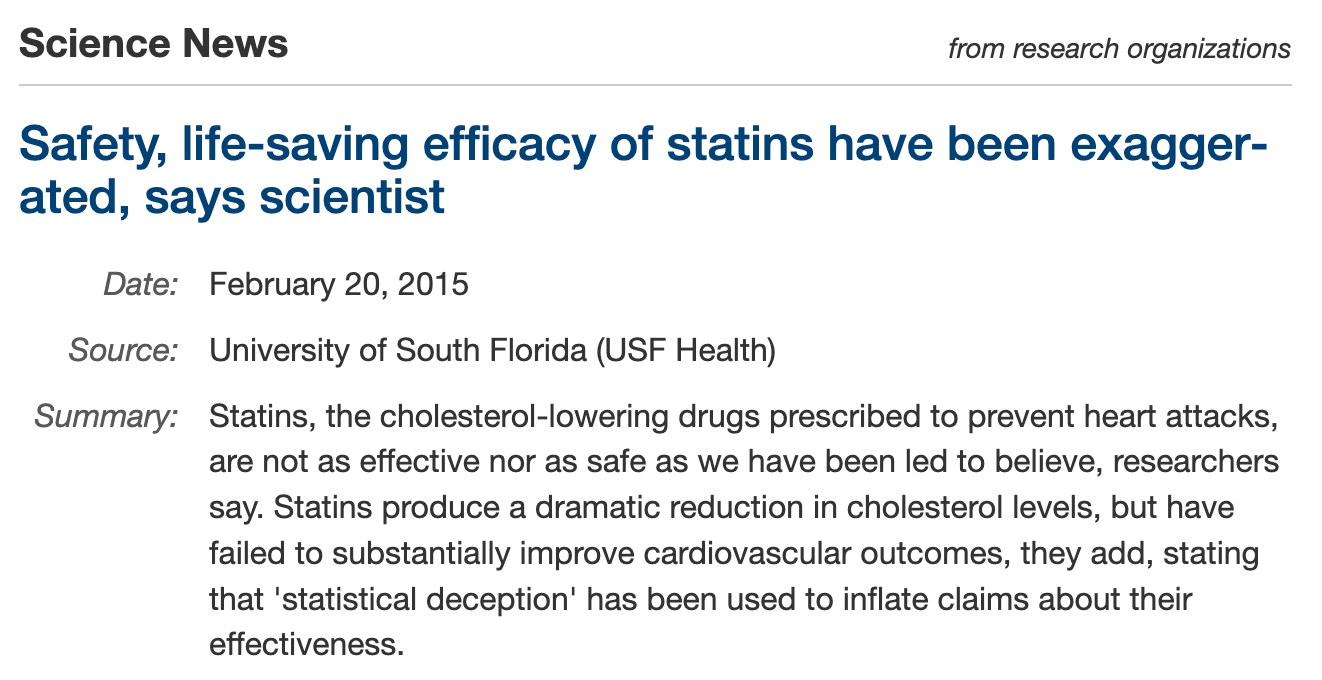
Interestingly, cardiovascular disease occurred in 22,798 patients taking statins.
This even happened in 10,656 patients whose statins effectively lowered cholesterol levels.
This suggests that cholesterol levels are not the only factor playing a role in preventing cardiovascular disease.
Plus, there are side effects.
Looking at the package insert, side effects are probably rare, but I still hope to be spared from the following conditions:
Liver function problems, acute renal failure, muscle weakness, cataracts, skin rash, all kinds of gastrointestinal disorders, musculoskeletal pain, upper respiratory tract infection, runny nose, headache, confusion, fatigue, chest pain, heart pain.
There are also studies showing that statins increase the risk of diabetes, lead to an increased risk of cancer (especially breast cancer in women) and can negatively affect the intestinal flora.
I didn't want to rule out statins in general to balance my cholesterol levels and lower the 'negative' LDL cholesterol, but I was wondering if there wasn't a natural alternative that might at least be worth a try.
Summary so far:
- 90% of women over 50 have high cholesterol
- This increases the risk of cardiovascular disease and strokes
- Nearly 4.6 million people in United Kingdom use drugs to lower cholesterol (statins)
- However, according to studies, these statins are not as effective and harmless as is believed
The Real Reason for High Cholesterol Levels
What the chief physician then said to my friend made perfect sense.
For him, one of the most important points was supporting cholesterol metabolism in the liver!
He explained that the key to regulating cholesterol levels is supporting liver function.
I learned that the liver is the heart of cholesterol metabolism in our body.
It is not only responsible for the production of cholesterol, but also for its management and elimination.
A large part of the cholesterol that our body needs is produced in the liver.
It is an essential component for the construction of our cell membranes, the production of hormones and the formation of bile acids, which are essential for the digestion of fat in the intestines.
But the role of the liver goes further.
It is also crucial to the way our bodies get rid of cholesterol.
The liver converts cholesterol into bile salts and passes them into the bile, from where they are excreted from the body.
In addition, the liver is also responsible for the synthesis of most lipoproteins, which transport cholesterol and lipids throughout the body.
These complex processes make it possible to keep cholesterol levels under control and maintain healthy heart function – provided, of course, that the liver is working efficiently.
And here we come to the real problem:
Most people – especially my age – have an overloaded liver.
The reason for this?
As a detoxification organ, the liver comes into contact with everything that enters our body over the years.
Alcohol, medication, heavy metal contamination, the occasional piece of cake or glass of wine.
Everything is metabolized by the liver sooner or later.
At a young age, the liver can easily break down all toxins.
But over time and as we get older, more and more “substances” accumulates.
The liver has to work harder and harder and cholesterol metabolism becomes increasingly unbalanced.
By the way: 20-30% of all people in UK even have the so-called non-alcoholic fatty liver disease (NAFL).
This means that their liver is already so fatty that it can no longer function properly.
The key to healthy liver values is to get your liver in shape.
So that it can do its actual work again: detoxifying the body.
And then the cholesterol level will stabilize again by itself.
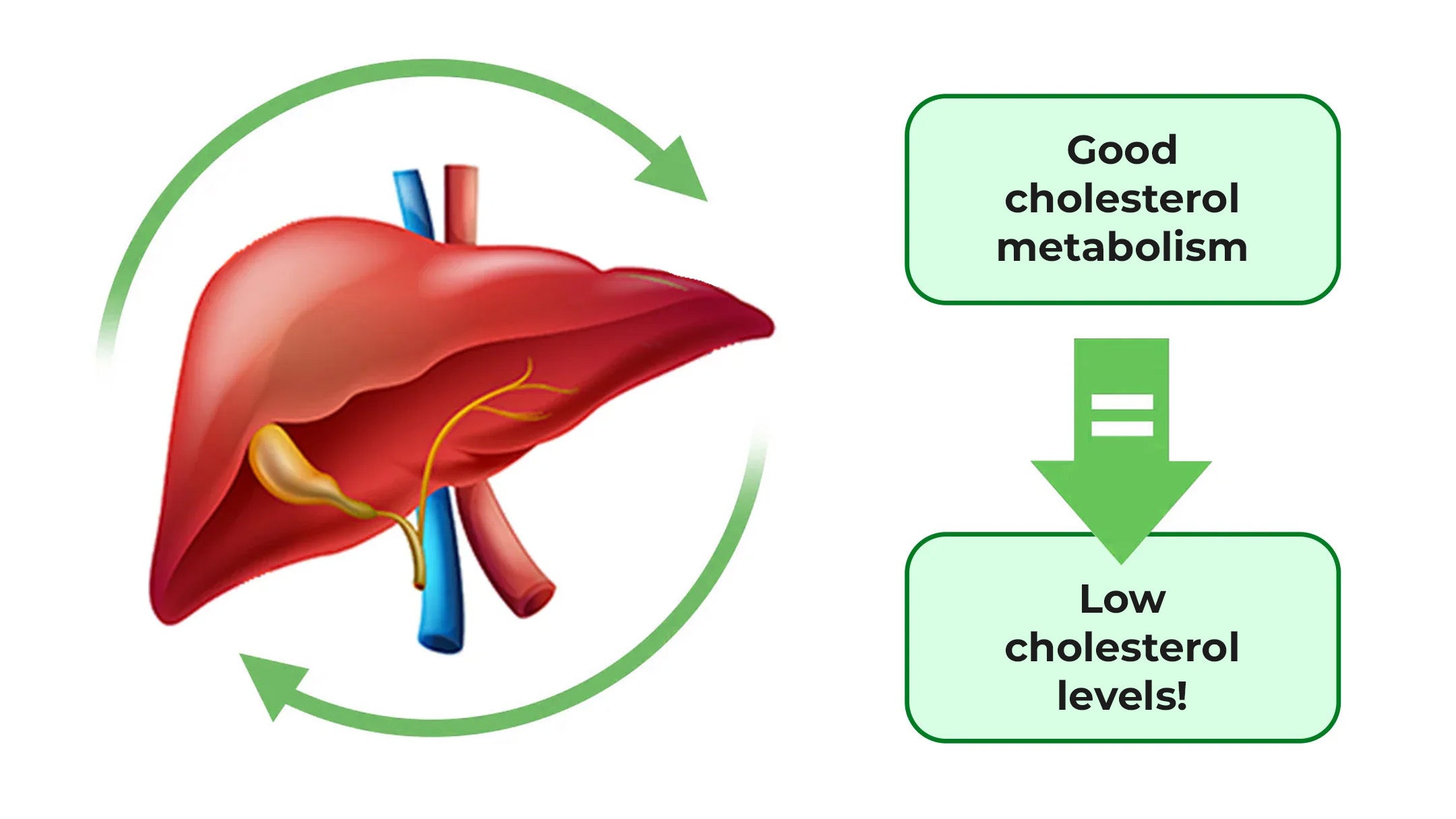
This is how you actively regenerate your liver
The big question now is:
How do you heal your liver?
You've probably heard of all kinds of liver cures or even liver fasting.
Or all kinds of diets where you are only allowed to eat vegetables and fruit.
Of course, changing your diet is never a bad idea.
As written above: everything you consume will sooner or later pass through your liver.
If you abuse your liver with alcohol, lots of sugar or fatty foods, the liver will not be able to recover.
But simply changing your diet is not the best way to cleanse your liver.
With just a change in diet, it will take a very long time for the liver to form new, healthy cells and (in the case of fatty liver disease) break down the fat.
Instead, you should actively supply the body and liver with nutrients that support the liver in detoxification and regeneration.
My friend's primary care physician recommends the following nutrients, which have been shown in study-based studies to have effects on liver health.
Warning: what follows will definitely blow your socks off.
Because there are already plants that contain active ingredients that have already been studied in scientific studies in connection with increased cholesterol levels and even fatty liver disease.
I have read over twenty different studies on this.
And the results are absolutely stunning.
Milk Thistle
Milk thistle is a true miracle plant when it comes to liver health.
It is one of the antioxidant medicinal plants. This means that it neutralizes free radicals and reduces oxidative stress.
Milk thistle has now been very well studied in relation to liver health.
The following research paper from Italy deserves special mention here:

The following conclusions can be drawn from the research:
- Milk thistle promotes the removal of old red blood cells from the liver
- It neutralizes toxins and waste products in the veins of the liver
- It prevents toxins from entering the liver cells
- It promotes liver regeneration and the formation of new healthy liver cells
- In animals, the liver can even protect against the intake of certain medications (e.g. paracetamol) and alcohol
- It improves bile production in the liver and cleanses the bile ducts in the liver
- It supports the liver in its detoxification function, especially if you combine milk thistle with dandelion and artichoke
But there is a second, much more impressive study:

This study involved 72 fatty liver patients who took the active substance silymarin (also found in milk thistle) twice daily.
The study lasted 3 months and the subjects were regularly examined for key liver values.
The astonishing result: taking silymarin led to significant improvements in ALT, AST and gamma-GT values!
These are the liver values that indicate fatty liver disease.
Even according to ultrasound, the fatty liver improved in the subjects.
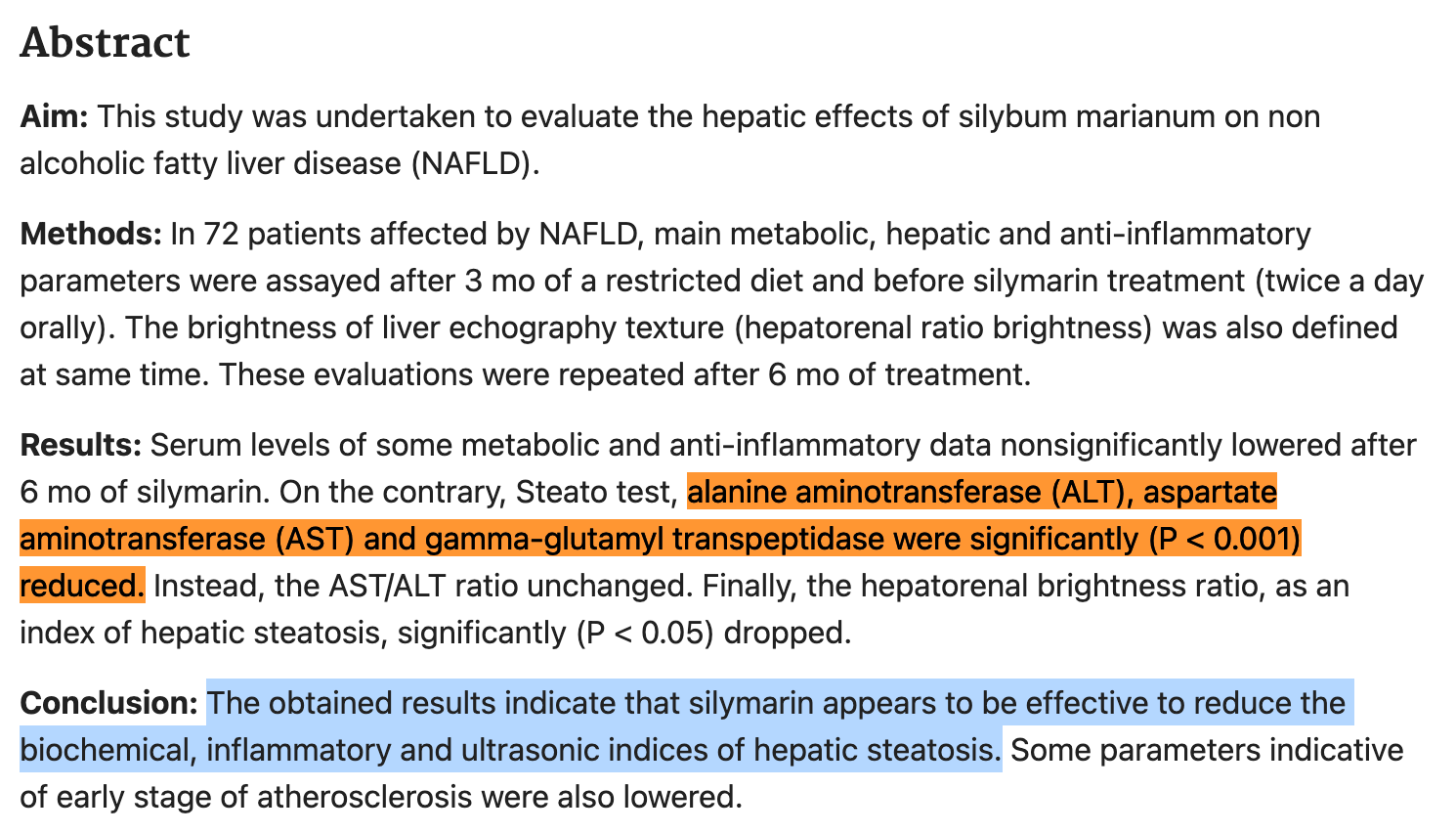
And then there's this meta-analysis that showed that silymarin can reduce oxidative stress in the liver and promote liver cell regeneration.
These effects may indirectly contribute to improved cholesterol metabolism.

The meta-study analyzed whether nutraceuticals – a combination of the English terms 'nutrition' and 'pharmaceutical', i.e. dietary supplements – have a positive effect on cholesterol levels instead of statins.
In a total of 131 different studies involving 13,062 participants, it was found that dietary supplements or certain herbal substances such as silymarin (i.e. milk thistle extract) could lower LDL cholesterol more effectively than a placebo.
So this shows us that statins are not always necessary.
Artichoke
Besides milk thistle, there is another plant that can be used as a natural cholesterol lowering agent.
Namely the artichoke.
Here I found the following research:
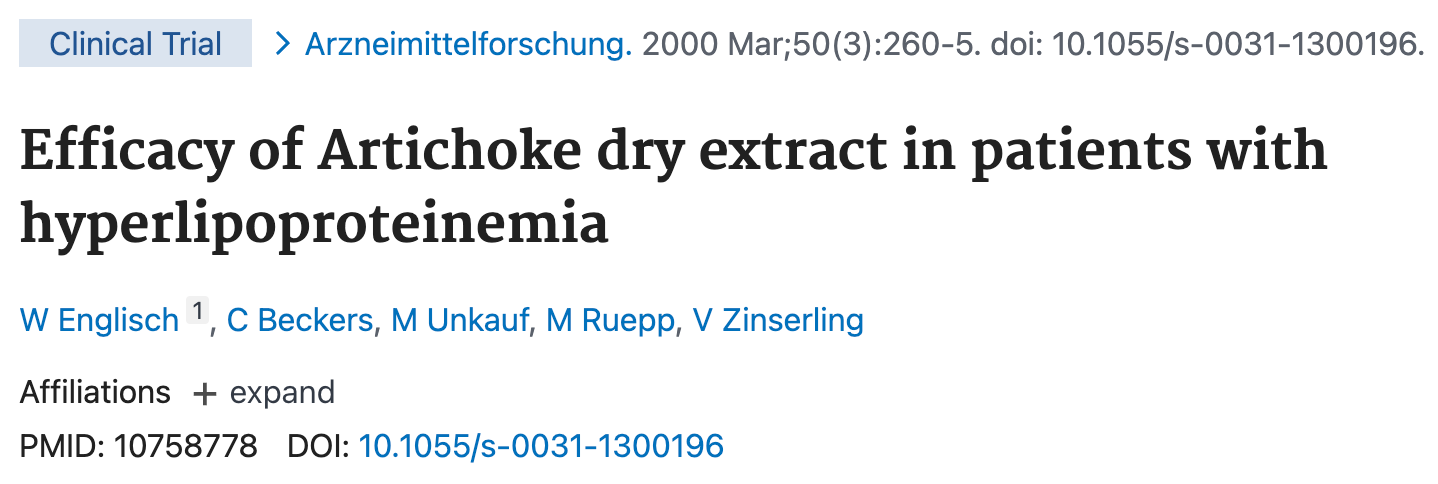
This study involved 143 adults who consumed artichoke leaf extract daily for 6 weeks.
The result: on average, the control group was able to lower their cholesterol levels by 18.5%.
The artichoke also has positive effects on digestion and bile. It improves bile flow and promotes pancreatic function.
But most impressive was this study, which attributed a hepatoprotective effect to artichoke leaf extract.
This means that the artichoke protects the liver cells and stimulates regeneration.
Now you're probably wondering, “How many artichokes should I eat per day?”
That's exactly what was going on in my mind.
I can give you the answer: you would have to eat dozens of artichokes to get enough of the active ingredient in the artichoke.
The same with milk thistle.
For this reason, my friend recommended me a product that was developed based on the processes in the body explained above.
The product is called “Liver Detox Blend” and is produced by a Europe based business called Greenleaf Blends.
It contains exactly the two ingredients mentioned above as well as dandelion root and choline – both ingredients that also support liver function.
What also gave me a safe feeling: Liver Detox Blend was tested by an independent laboratory.
This is a very important factor, especially with liver preparations.
The best thing about the product, however, is the price.
Who doesn't know it? Some expensive liver cures that cost more than £100 and where you have to order multiple doses at once.
With Liver Detox blend, it is different: one can contains 60 capsules. You take two capsule per day.
One bottle of Liver Detox blend is sufficient for a 1-month liver treatment!
Instead of expensive treatments per month, you only spend £30 per month.
If you order the bundle packages, you will even receive more discounts that goes as low as £23 per bottle!
That's what I call fair pricing.
Just under £23 a month for the chance to detox my liver and escape statins?
And that with just two capsules a day?
With ingredients based on scientific research?
For me it was clear: it was worth a try.
My experiment with Liver Detox Blend begins
Liver Detox Blend contains the ingredients mentioned above.
In high-dose extract form.
Milk Thistle Seed Extract is present in a ratio of 25:1. This means that the extract is 25 times more concentrated than the starting material.
80% of this is the active ingredient silymarin, which has also been the subject of numerous studies.
This is important to emphasize. You need the right type of milk thistle seed extract.
By the way: many other liver preparations cost more money and have too low a dosage of silymarin.
Artichoke leaf extract is present in a ratio of 5:1.
Dandelion root extract is present in a ratio of 4:1.
Before ordering the product as a test, I browsed through the customer reviews.
I wanted to see if there were already people who could lower their liver values with the product.
This is what I found:
Wow.
I found the last review especially exciting.
I decided to give the product a try for three months.
To make the experiment more exciting, I had a complete blood count done after three months.
The result was amazing!
My LDL cholesterol has dropped significantly, now at 120 mg/DL.
Still a bit high, but at least now within the reference range.
My doctor was amazed and asked me what I had been doing for the past three months!
My HDL cholesterol remained unchanged, but because my LDL cholesterol was now significantly lower, the ratio to HDL cholesterol was now much better.
My triglycerides have also improved slightly.
What I also noticed: I felt less tired, I could exercise more easily and my sleep also improved.
As you can see: I am completely convinced of Liver Detox Blend.
I can only recommend that you just give it a try.
You have nothing to lose. Only with warranty you can improve your quality of life.
Greenleaf blends offers 365-days money-back guarantee.
That's why I'm linking you here to Greenleaf blend's online store, where you can also order exactly the same product.
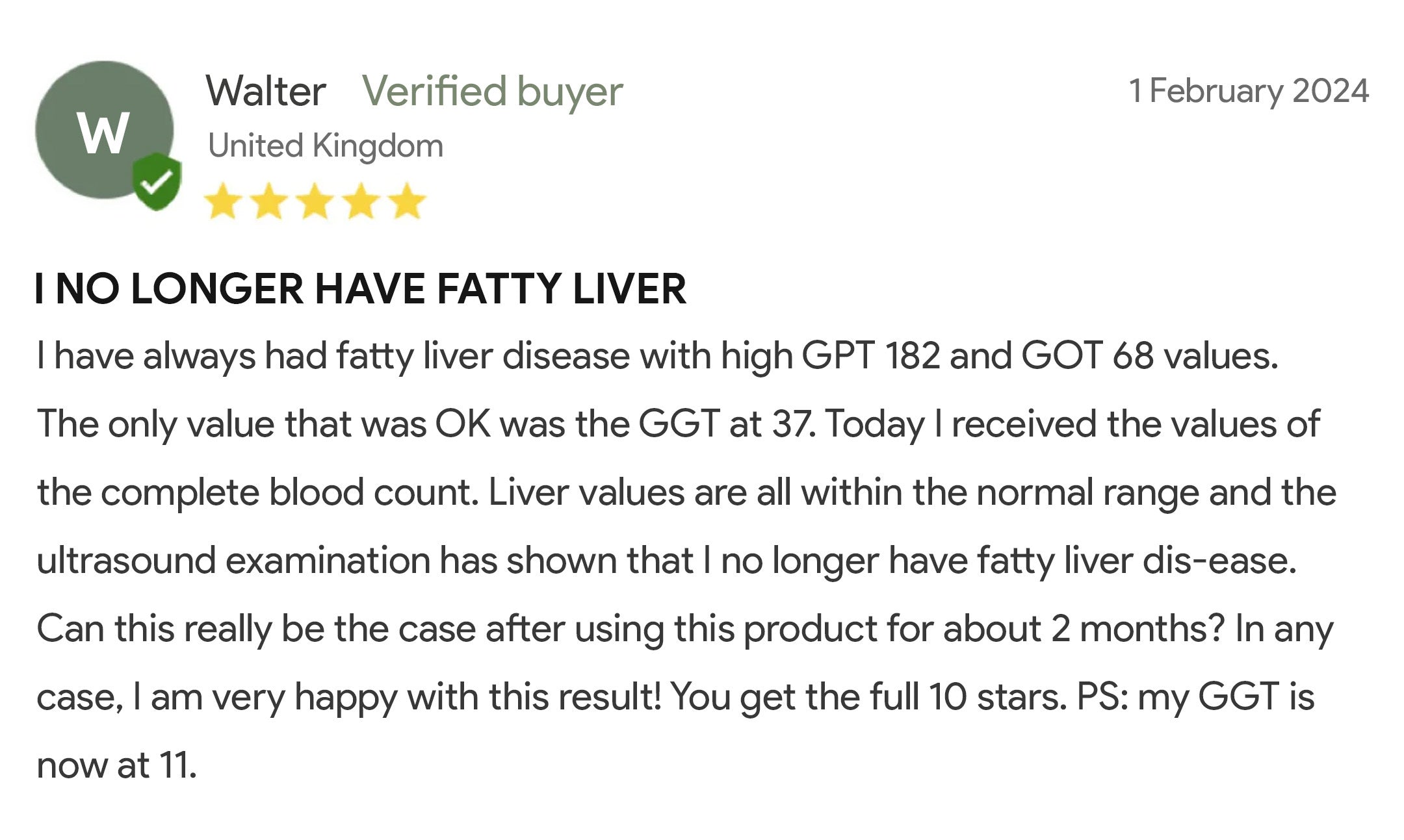
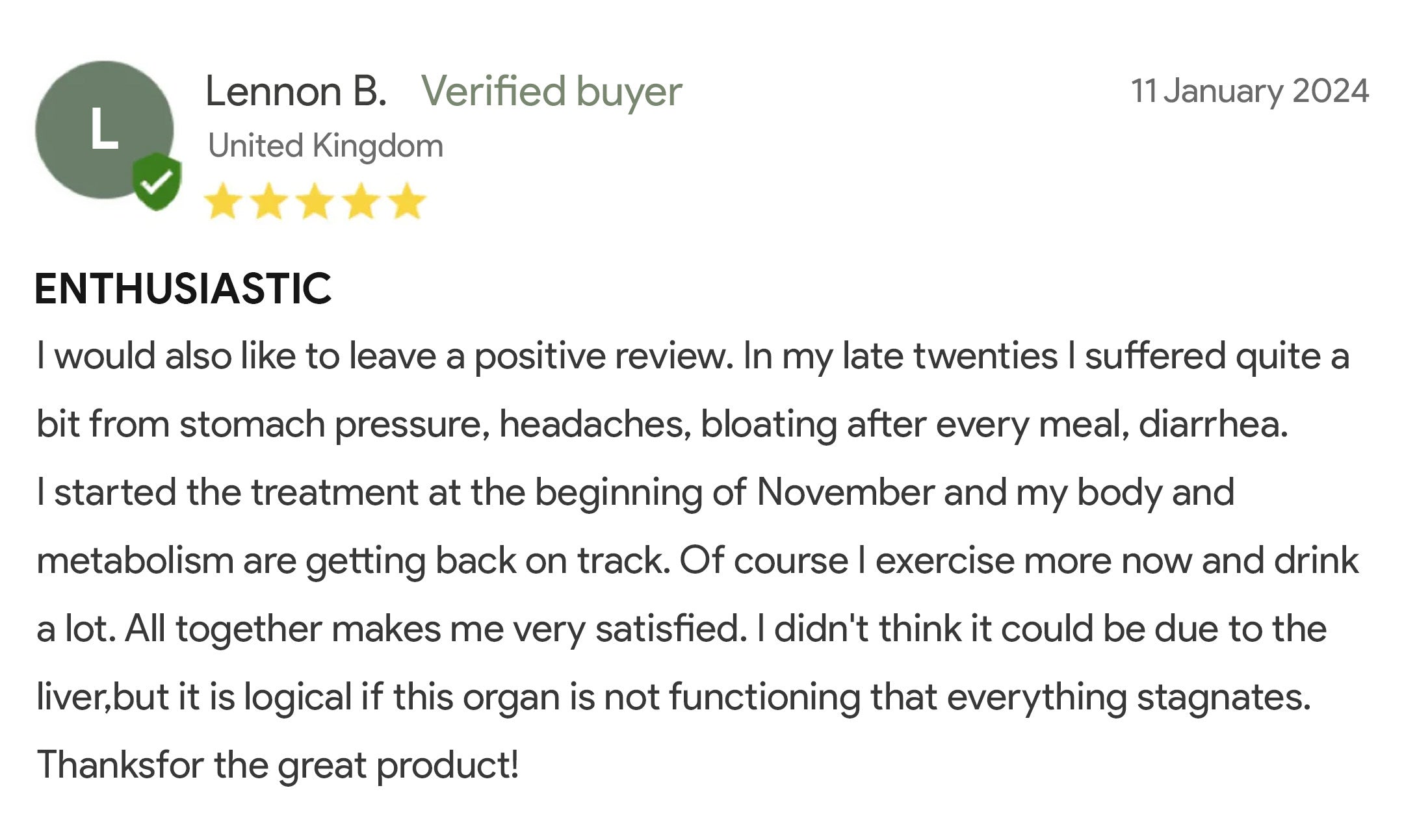
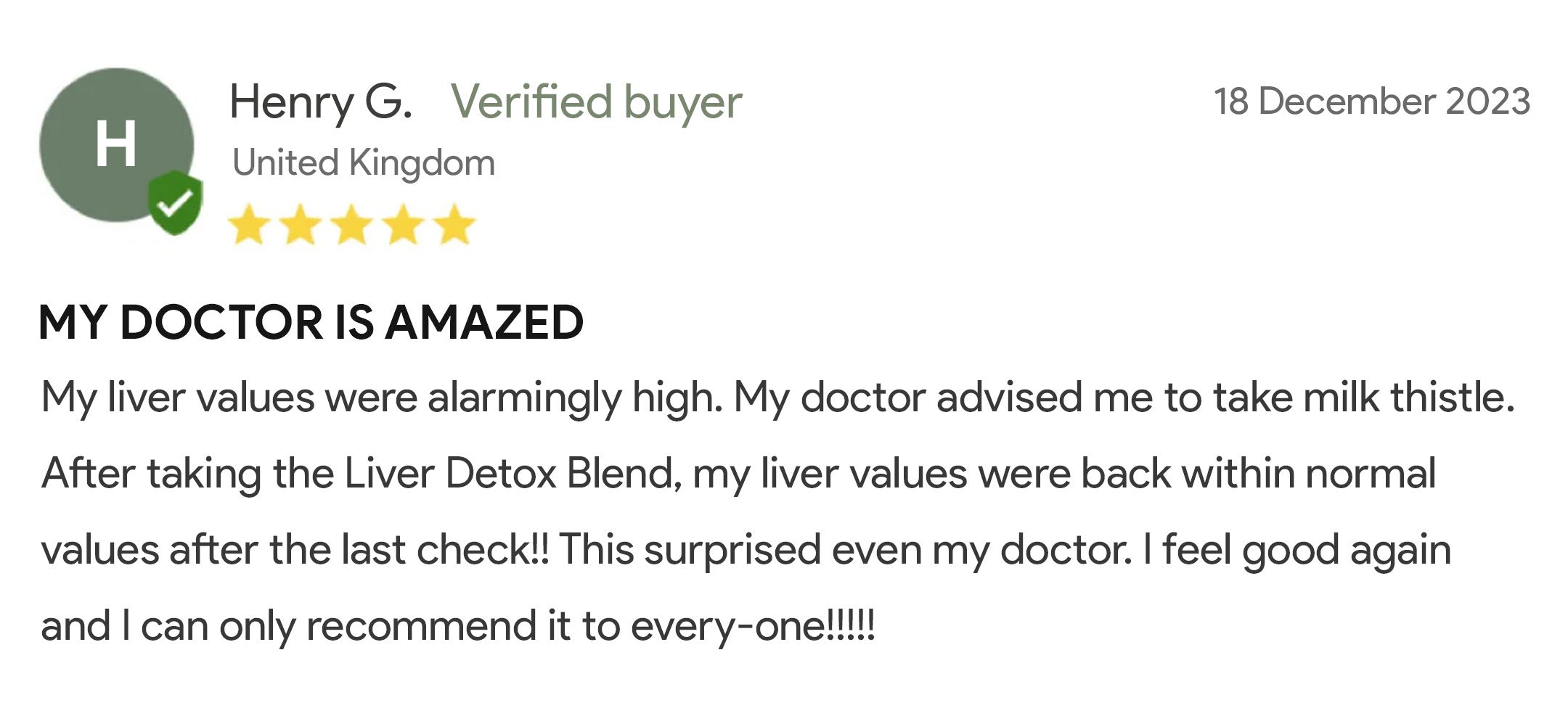
Now click the button and check the Liver Detox blend availability
What I like about the Liver Detox Blend
1. It is developed by a renowned company in the Netherlands.
2. The composition has been put together by experts. You can see that current leading research has been taken into account when developing the product.
3. Greenleaf Blends offers the product at an absolutely fair price. Other liver complexes, which are of lesser quality, sometimes cost £50-70 per month. Liver Detox Blend is already available for £30 per month.
4. The ingredients are natural and of the highest purity and quality.
5. I think the packaging is beautiful.
6. I only need to take 2 capsules a day to combat my fatty liver disease.

About the author
Martina Schuster is 51 years old and after being diagnosed with high cholesterol during a routine health check, she was faced with the difficult decision of whether to take medication or seek alternative options. After her friend felt the effects of high cholesterol, she decided to delve deeply into the topic. Now, she shares not only her extensive knowledge, but also her personal experiences and insights to help other patients make informed decisions about their health.
Appendix
Due to the many positive feedback, I have once again answered some frequently asked questions:
What distinguishes the Liver Detox Blend from other liver products?
Milk thistle extract is more concentrated in Liver Detox Blend than in most other liver products. Choline has also been added, which is lacking in many other liver complexes. Independent laboratory testing is particularly important for liver products. There is no doubt that quality and safety are guaranteed here. The Greenleaf Blends company has a very good reputation in this regard. Unlike other companies of its type, Greenleaf is not owned by a giant supplement conglomerate that only cares about maximizing profit. On the contrary: it is still a family business owned by the original founders. This is also reflected in the price. Liver Detox Blend is significantly cheaper than comparable liver products.
How long does it take before you see or feel the first changes?
Herbal nutritional supplements have a different effect on everyone, because each body determines how it handles the ingredients they contain. Therefore it is not possible to give a general answer. However, there is feedback from many customers where the first effects are reported after just under 3 weeks of regular use.
Can I also take the Liver Detox Blend without fatty liver disease?
Yes, Liver Detox Blend can also be taken preventively or if fatty liver disease is suspected. All ingredients are of natural origin. People who burden their liver through diet, alcohol consumption or medication can especially benefit from the product.
Is there a guarantee?
Yes, Greenleaf Blends has a satisfaction guarantee. If you are not satisfied with the results within 365 days, you will receive a full refund.


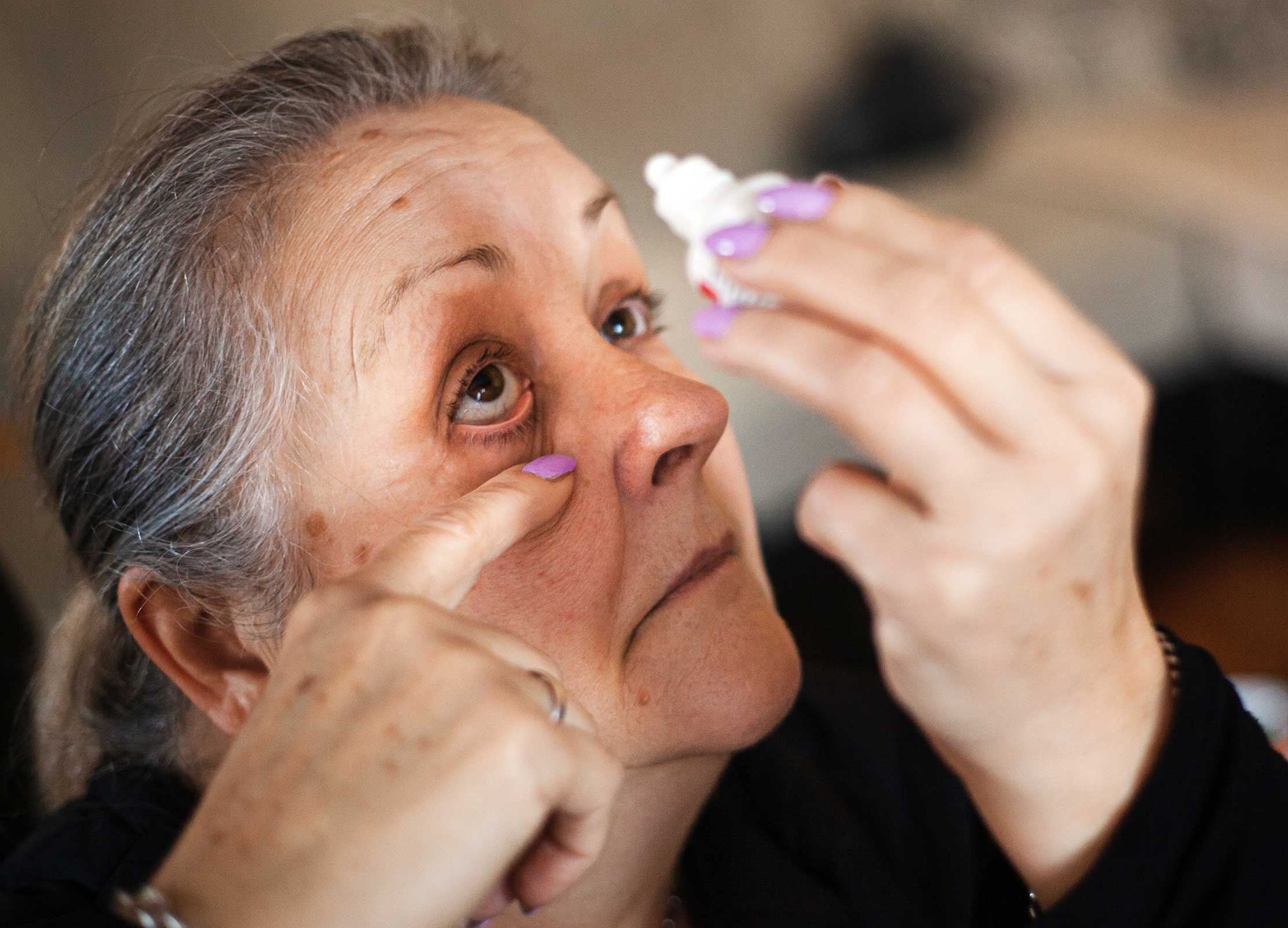

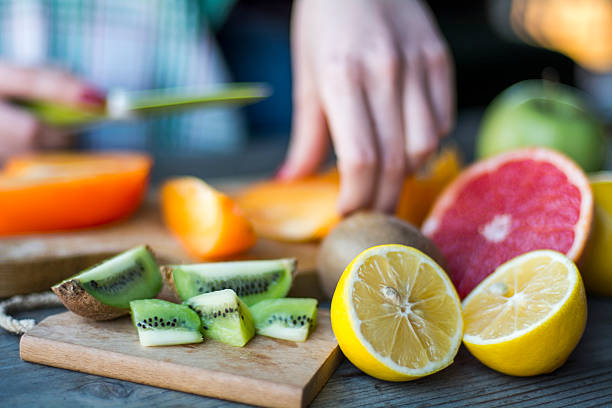


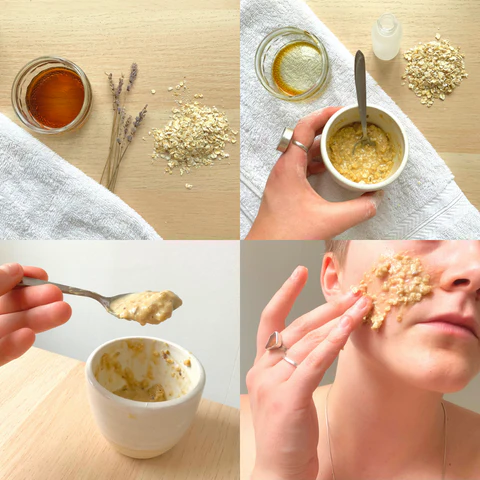

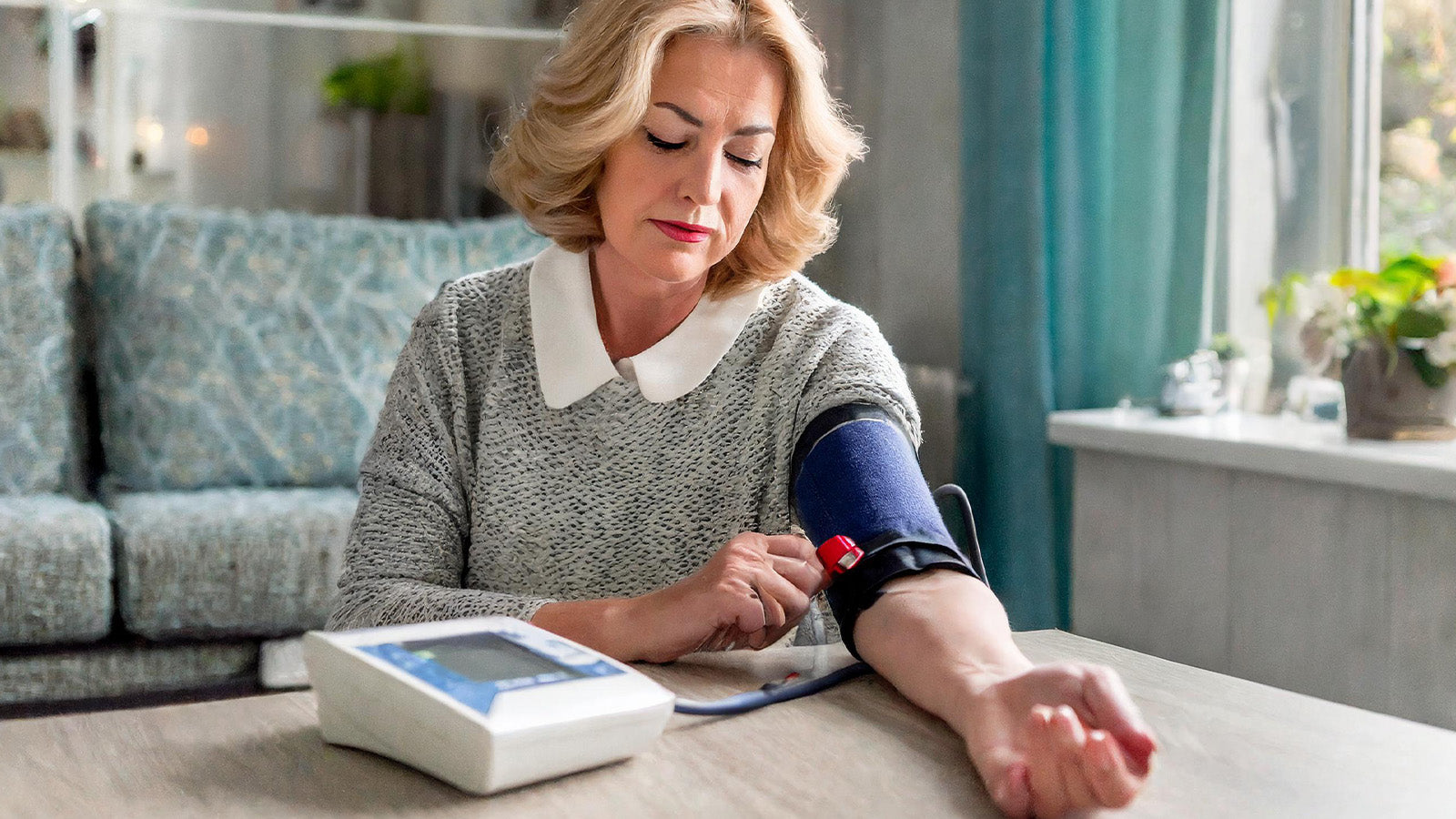



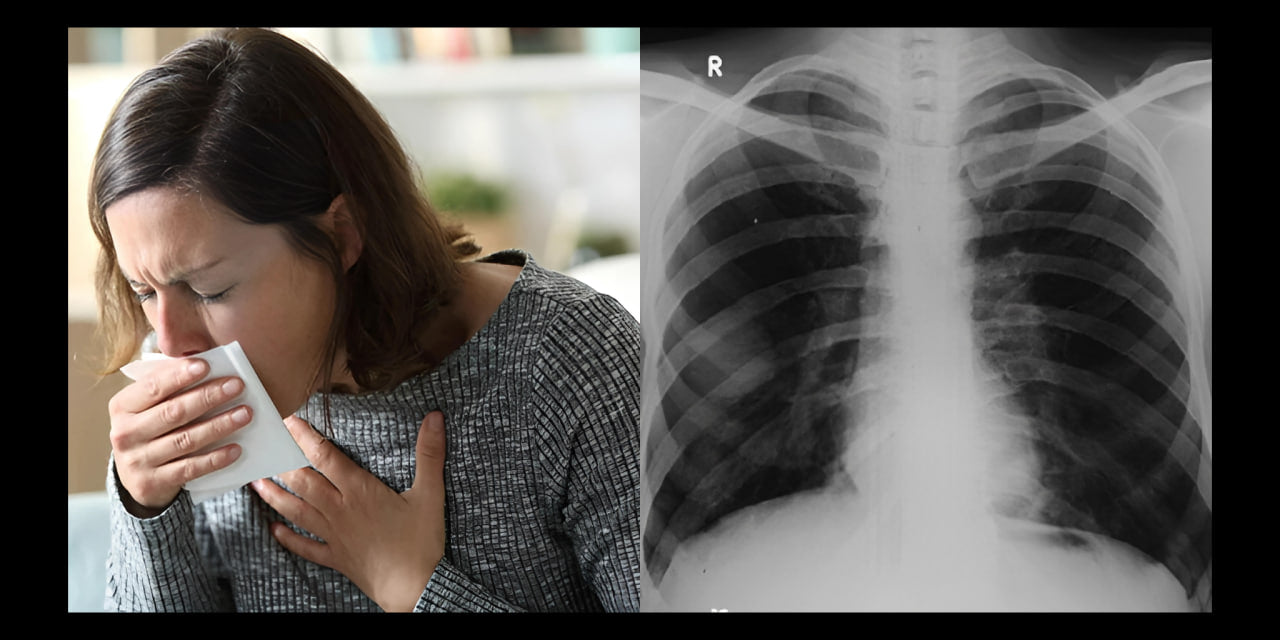
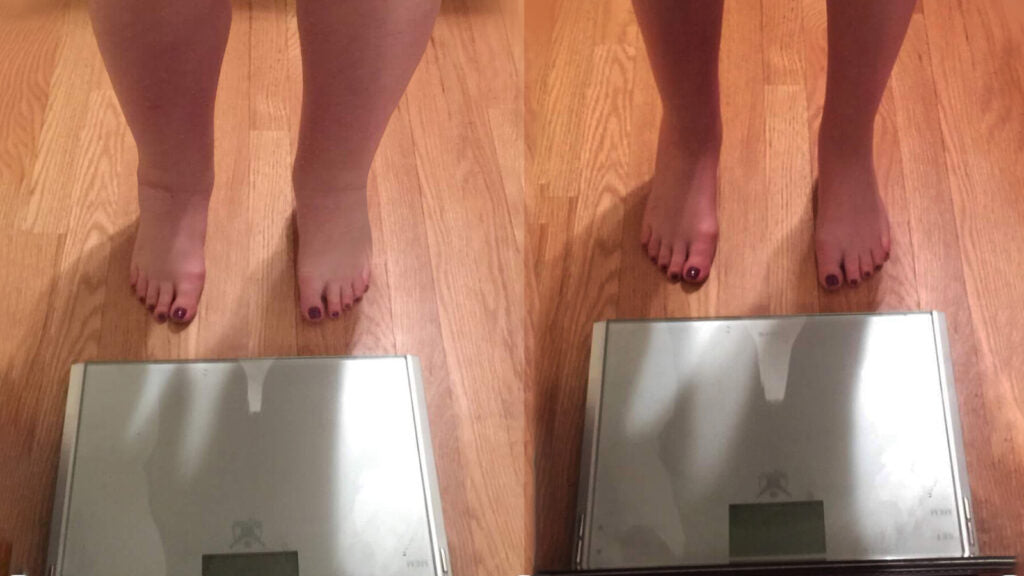
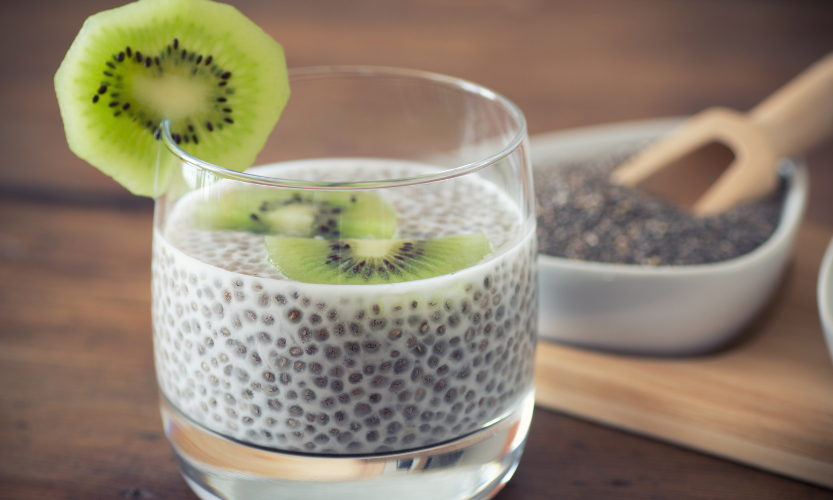





Answers